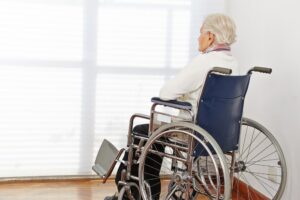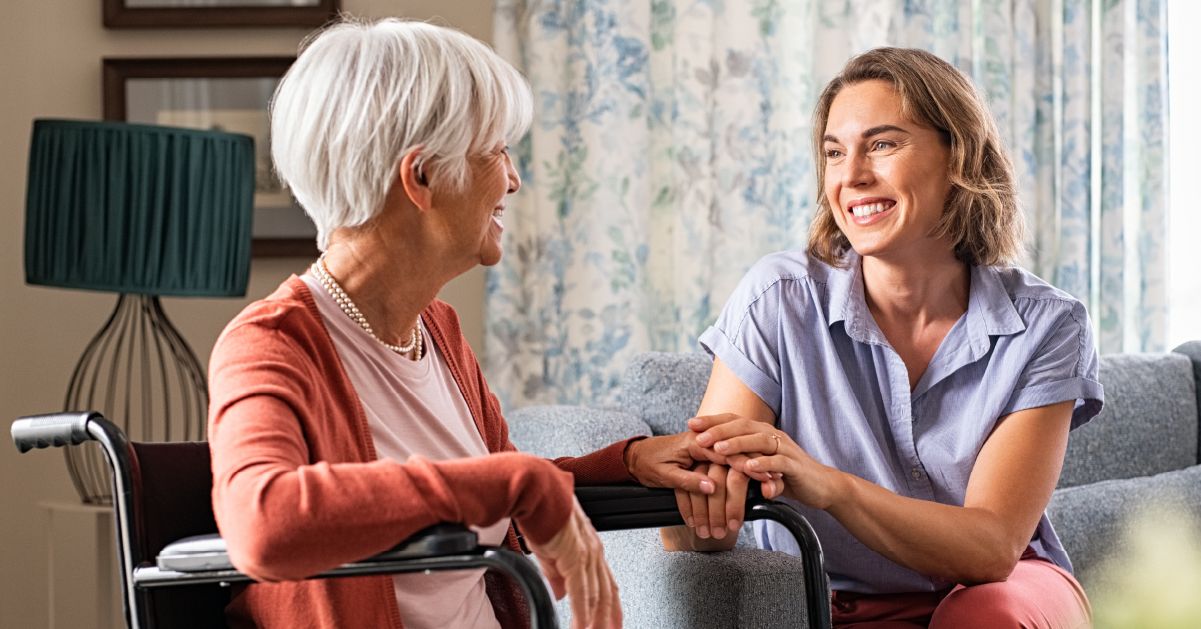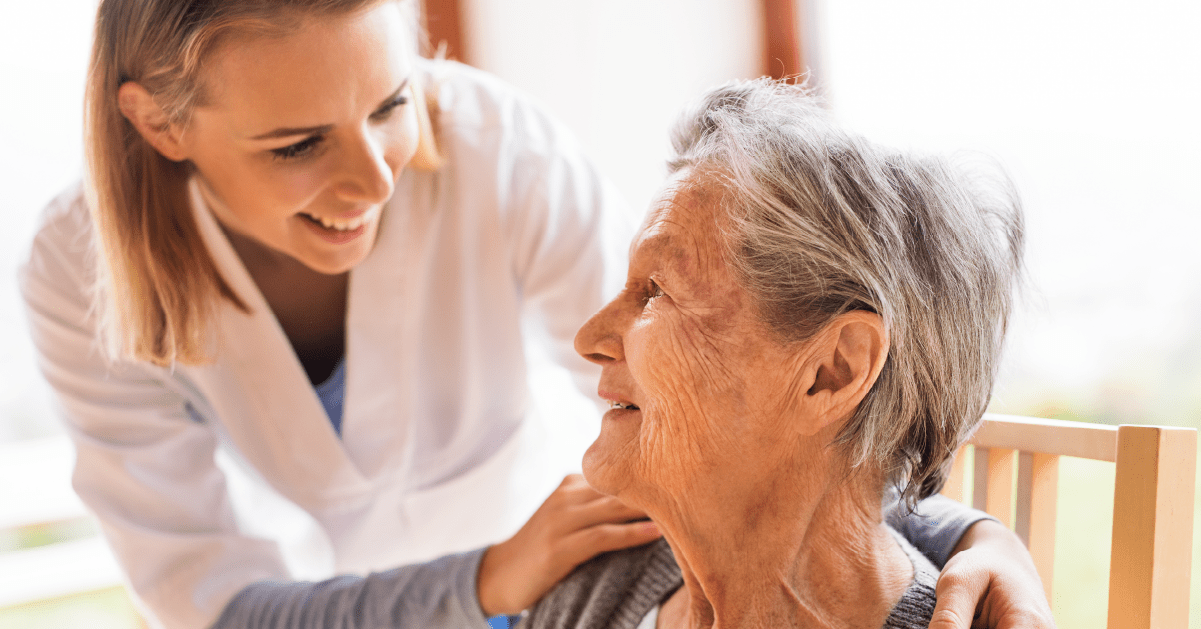In an ideal world, nursing homes and long-term care facilities would provide a safe and nurturing environment for our elderly loved ones, offering the care and dignity they deserve. However, the reality is that cases of nursing home abuse and neglect persist, often shrouded in silence and hidden from view.
Nursing home abuse can have devastating physical, emotional, and psychological consequences for the residents. Recognizing the signs of nursing home abuse is not only a vital step in ensuring the well-being of our senior family members but also a means to hold facilities accountable for their duty of care. In this blog post, we will shed light on the subtle, and not-so-subtle, indicators of nursing home abuse, empowering you to protect your loved ones and advocate for their rights in these crucial moments of vulnerability.
If you suspect nursing home abuse or neglect, it’s crucial to seek legal guidance and support. Contact a Long Island nursing home abuse lawyer to help you navigate the legal aspects of the situation and ensure justice for your loved ones.
What is Nursing Home Abuse?

Nursing home abuse refers to any intentional or negligent act that causes harm, injury, or distress to residents in a nursing home or long-term care facility. Nursing homes are intended to provide a safe and supportive environment for elderly or disabled individuals who may require assistance with their daily living activities and medical care. Nursing home abuse can take various forms, including:
Physical Abuse
This involves the use of force or physical harm against a resident. It may include hitting, pushing, restraining, or any other act that causes physical injury.
Emotional or Psychological Abuse
Emotional abuse can take the form of verbal insults, threats, intimidation, humiliation, or isolation, leading to the resident’s emotional distress or mental health issues.
Sexual Abuse
Sexual abuse involves any non-consensual sexual contact or harassment of a resident within the nursing home.
Financial Abuse/Exploitation
This type of abuse occurs when someone misappropriates or exploits a resident’s financial resources or assets, such as stealing money, forging checks, or pressuring the resident to make financial transactions.
Neglect
Neglect is the failure to provide necessary care and attention to a resident. It can result in dehydration, malnutrition, untreated medical conditions, or the development of pressure sores due to inadequate attention.
Environmental Abuse
Poor living conditions, such as unsanitary facilities, overcrowding, or insufficient heating or cooling, can also be a form of abuse.
How Common is Nursing Home Abuse?
Nursing home abuse and neglect are significant concerns, and while it’s difficult to provide exact statistics due to underreporting and variations in definitions, research and data have shed some light on the prevalence of these issues.
According to the National Center on Elder Abuse (NCEA), it is estimated that approximately 10% of nursing home residents experience some form of abuse. This percentage may be higher for neglect, which can be more challenging to detect. One of the challenges in assessing the prevalence of nursing home abuse is that many cases go unreported. Victims may fear retaliation, lack the cognitive ability to report the abuse, or be unaware of their rights.
Efforts are ongoing to improve the quality of care in nursing homes, strengthen regulations, and increase awareness of elder abuse. Families and individuals can play a critical role in addressing these issues by being vigilant, reporting suspected abuse, and advocating for the rights and well-being of nursing home residents.
What are the Signs of Nursing Home Abuse?
While these signs may vary depending on the type of abuse, here are some common indicators that may suggest nursing home abuse or neglect:
- Unexplained injuries: Look for bruises, cuts, fractures, or other injuries that cannot be adequately explained by the nursing home staff. Frequent injuries or a pattern of injuries may be a cause for concern.
- Emotional changes: Watch for sudden changes in a resident’s emotional state, such as increased fear, depression, anxiety, or withdrawal. Emotional abuse or neglect can lead to these symptoms.
- Changes in behavior: Pay attention to any significant alterations in a resident’s behavior or routine, such as becoming agitated, aggressive, or excessively quiet. Behavioral changes can be indicative of abuse.
- Weight loss or malnutrition: Unexplained weight loss, malnutrition, or dehydration may suggest neglect in providing proper nutrition and hydration.
- Bedsores or pressure ulcers: These painful and often preventable sores can develop if a resident is left in the same position for extended periods without proper care.
- Poor personal hygiene: Neglected residents may exhibit poor personal hygiene, including unchanged clothing, unkempt hair, or lack of bathing.
- Medication issues: Be aware of incorrect dosages, missed doses, or unexplained changes in a resident’s medication regimen. Medication errors can be a sign of neglect or inadequate care.
- Unexplained financial changes: If a resident’s finances are mismanaged, or there are sudden withdrawals from their accounts or changes in their will, it could be a sign of financial exploitation.
- Fear or discomfort around certain staff members: If a resident appears fearful or uncomfortable around specific staff members, it could indicate emotional or physical abuse.
- Environmental concerns: Pay attention to the overall condition of the nursing home. Poor sanitation, lack of maintenance, overcrowding, or insufficient heating or cooling can all be signs of neglect or inadequate care.
- Sudden deterioration in health: A resident’s health can decline rapidly if they are not receiving proper medical attention, which may indicate neglect.
- Isolation: If a resident is kept away from family and friends, it can be a form of emotional abuse and isolation.
What Should I Do if I Suspect My Loved One is a Victim of Nursing Home Abuse?
Nursing home abuse is a serious matter, and taking proactive steps to address it and protect your loved one is essential. If you suspect nursing home abuse and take action, such as:
Document Your Concerns
Keep a detailed record of your observations and any signs of abuse or neglect. Document dates, times, descriptions of injuries or incidents, and the names of individuals involved. This documentation can be valuable if legal action becomes necessary.
Talk To Your Loved One
Approach your loved one with care and concern. Listen to their experiences and feelings without judgment. They may be hesitant or fearful about discussing the abuse, so be patient and supportive.
Notify The Nursing Home Management
Report your concerns to the nursing home’s administrators, director of nursing, or a senior staff member. Request a meeting to discuss the situation and the actions the facility plans to take. Make sure to document this communication.
Report The Incident To New York State Authorities
You’ll want to file a formal report with state authorities. The New York State Department of Health, Division of Nursing Home and ICF/IID Surveillance is responsible for investigating complaints about resident abuse, neglect, and incidents in nursing homes in New York. All complaints are confidential and can be made anonymously. You may submit this form in multiple ways:
- Call the Nursing Home Complaint Hotline at 1-888-201-4563
- Print out the Nursing Home Complaint Form [ PDF ] Available in the following languages: Español (Spanish), 中文 (Chinese), Kreyòl Ayisyen (Haitian-Creole), Italiano (Italian), 한국어 (Korean), Русский (Russian), יידיש (Yiddish), Polski (Polish), Français (French), ইংরেজি (Bengali), العربية (Arabic), اُردُو (Urdu)
- Mail a form to: NYSDOH DRS/SNHCP, MAILSTOP: CA/LTC, EMPIRE STATE PLAZA, ALBANY, NEW YORK 12237
- Fax the Complaint form: 518-408-1157
- Scan the form and E-mail to: nhintake@health.ny.gov
Seek Medical Attention
If your loved one has suffered injuries due to abuse, ensure they receive appropriate medical care. Document their injuries and any medical treatment received.
Remove Your Loved One from The Facility (If Necessary)
If you believe that your loved one is in immediate danger or is not receiving appropriate care, you may need to consider relocating them to a different facility or into your own care if possible.
Preserve evidence: Maintain any physical evidence, photographs, or documentation that may be relevant to the case. These can be essential if you decide to pursue legal action.
Consult With an Attorney
Consider consulting with an attorney experienced in elder abuse or nursing home abuse cases. They can help you understand your legal options and represent your loved one’s interests.
Contact a Long Island Nursing Home Lawyer

Recognizing the signs of nursing home abuse is only the first step in addressing this critical issue. When the safety and well-being of your loved ones are at stake, consulting a lawyer is often a necessary and proactive measure.
Legal professionals experienced in elder abuse cases can provide guidance, support, and a path to justice for the victims and their families. By taking this crucial step, you not only hold wrongdoers accountable but also contribute to raising the standards of care in nursing homes, ensuring a safer and more respectful environment for all residents.
Remember, you are not alone in this fight, and legal assistance can make a significant difference in protecting your loved ones and preventing further instances of abuse in nursing homes. Consult a Long Island personal injury lawyer at Rosenberg & Gluck LLP today for a free and confidential case consultation.








